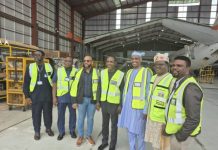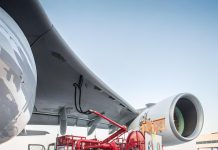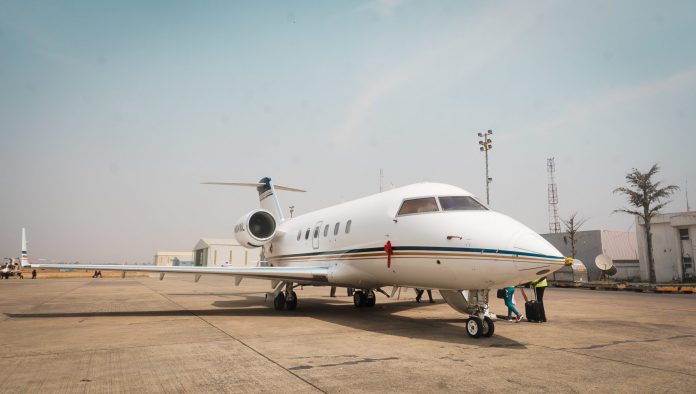The Ministerial Taskforce on Illegal Air Charter Operations has reported a significant rise in the number of private business aircraft operating in Nigeria, alongside a concerning increase in illegal charter activities. During a recent news conference in Lagos, the taskforce revealed that the number of private business jets in Nigeria has surged from 44 in 2005 to 157 in 2024, marking a 357% increase over the past two decades.
This rise in private jet ownership has coincided with an increase in illegal activities facilitated by private aircraft, including money laundering and drug trafficking. Minister Festus Keyamo’s decision to establish the taskforce followed complaints from legitimate air charter operators and disturbing security reports from national security institutions. The eight-member taskforce was inaugurated on June 27 to investigate the persistence of illegal charters by Private Non-Commercial Flight (PNCF) holders despite existing regulatory controls.
Preliminary findings from the taskforce, shared by spokesperson Roland Iyayi, revealed that many of the 62 PNCF licenses in operation are being used for illegal charter operations. “When you have a permit for non-commercial flight, it gives you the privilege to operate your aircraft for private purposes. It is an aberration to now take the same aircraft on a PNCF to now put it on somebody else’s AON. What that suggests is that you deliberately try to flout the provisions of what the regulation says,” Iyayi stated.
These illicit activities are not limited to minor operators but also involve high-net-worth individuals using their private jets. Most of the implicated aircraft are foreign-registered, complicating the Nigerian Civil Aviation Authority’s (NCAA) ability to conduct thorough scrutiny. “Even more alarming is the fact we have uncovered that the illegal air charter operations are not only restricted to the small operators in the business; we found that some high-net-worth individuals who use their private jets for commercial charter are the most complicit. The foreign-registered aircraft that do not come under the purview of the NCAA are particularly problematic,” Iyayi added.
The taskforce highlighted several issues contributing to the problem, including opaque passenger manifests, conflicting regulatory matters, and inadequate oversight, which have resulted in substantial revenue losses for the federal government. A preliminary report suggested that activities of illegal private jet operators have cost the federal government trillions of naira in lost revenues over the past two decades.
The committee’s secretary, Mr. Roland Iyayi further explained that foreign-registered aircraft are not under the purview of the NCAA, which has allowed these aircraft to operate without paying necessary levies and taxes. “In totality, what we’ve been able to deduce is that the federal government has incurred huge losses in terms of revenues, particularly in the last two decades,” Iyayi said.
The Taskforce Chairman, Captain Ado Sanusi, emphasized that despite ongoing investigations, illegal charters continue unabated. “We need to do on-the-spot checks to make sure that we report it to the authorities to stop these illegal charters, and we are doing that and will continue to do that,” Sanusi stated.
The taskforce’s next steps include calling for submissions, interviewing key industry stakeholders and PNCF holders, engaging whistleblowers, and placing advertorials to gather more information. The taskforce assured that all proceedings would be conducted with utmost confidentiality, transparency, and accountability. They have a three-month mandate to complete their investigation and present a comprehensive report to the Minister of Aviation and Aerospace Development.













